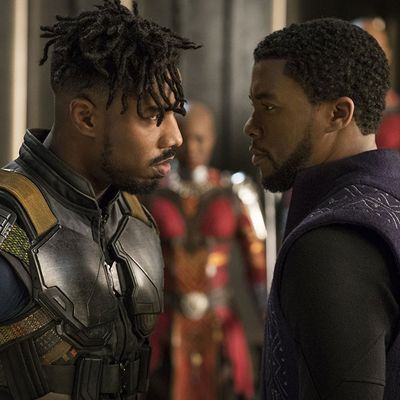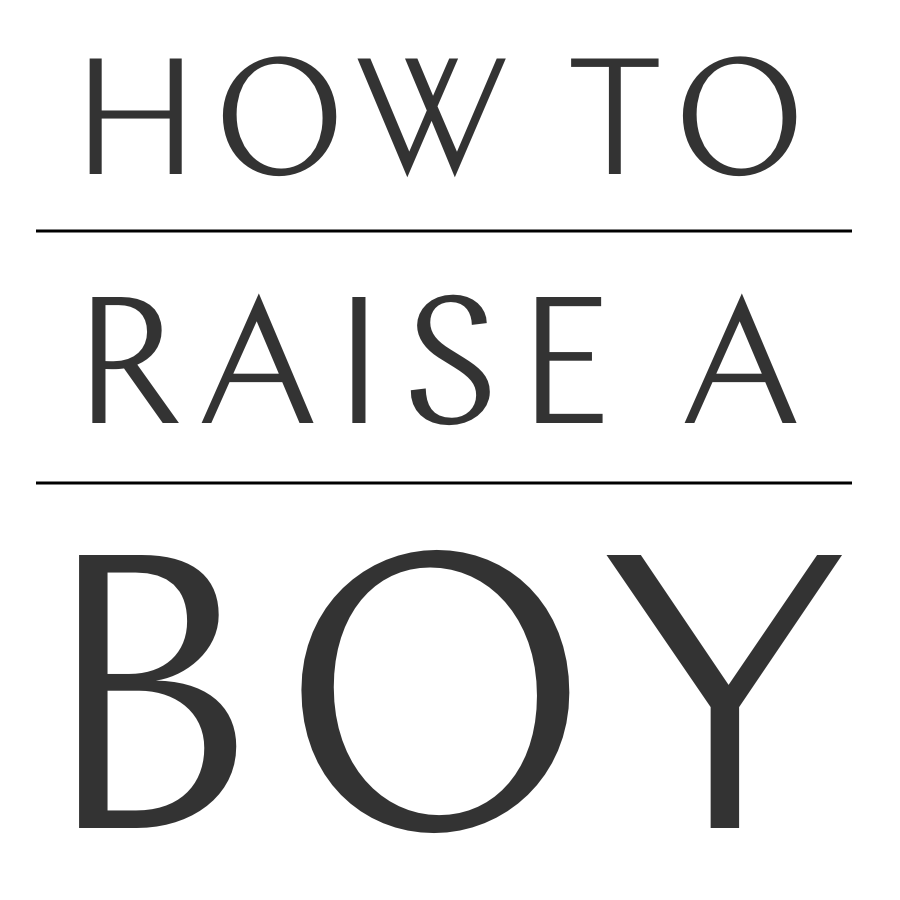
How to Raise a Boy is a weeklong series centered around this urgent question in the era of Parkland, President Trump, and #MeToo. Here, a father talks to his teenage son, James, and his three friends — Zuri, Adrian, and Jordan — who just saw Black Panther.
Jordan: This is my third time seeing it — I’ve been waiting for something like this for so long. Comic books have been very important to me, so to see that but also have a chance to be empowered. I have so much joy watching this movie.
Zuri: To bring together Africa, the continent, and black America, was genius.
James (son): My thing was, you come in the theater, you see all these black faces, all these dashikis, these African necklaces, people painting their faces. We know this is for us.
Adrian: The moment where the main villain, Killmonger, meets his end, I will truly never forget. Ever. He’s about to die, and the main hero, T’Challa, offers to save him. But he’ll be in prison. And he says, let me die. And bury me in the ocean, because his ancestors prefer death over bondage.
James (father): You know what he’s talking about there, about enslaved Africans jumping off ships during middle passage?
Zuri: Yeah … the thing that really resonated with me was with T’Challa and Shuri (his sister), after he’s crowned king. They do that handshake, with the chest bump. You see the joy, the pride.
Jordan: The film says more about black masculinity when you look at the female characters. The female general, they showed her as powerful but also when she was less a machine — she was a human being with feelings and cares. What I took is that hypermasculinity is not needed. You can let other people be strong, and be strong as well.
Zuri: What about that scene when Nakia and T’Challa are walking in the town? He says, “If you weren’t so stubborn, you’d make a great queen. And she says, “I would make a great queen because I am stubborn.” I know historically people have said that the black family is messed up for a lot of them being matriarchal, but you see how that’s such a strength.
Adrian: With Marvel being so big and well-known, it makes it that much better. It gives little black kids something else to be for Halloween, for example. Like not having to worry about wearing some crazy wig or being a little white princess. You can be someone who looks like you, and you don’t have to be an athlete.
James (father): Anything about the movie you didn’t like?
James (son): I’ll say it right now: I liked Black Panther, the character, the comics, just the idea, from the beginning. This dude in this suit running around, all these flashy abilities. When he stepped on the stage in Civil War and scratched Captain America’s shield — the impervious shield of whiteness — I was like, yo, I’m wearing Black Panther everything. And then when I heard there was going to be a movie, I was like, Please don’t mess this up. I got my dashiki on, I got my African medallion on, I walked into the theater, sat down, boom. Even in the first scene, I was just shook. I heard people talk about like, “Oh the acting wasn’t this or that.” Nah. That movie was great.
Jordan: The second time I saw the movie I realized that I think Ryan [Coogler, the director] was trying to do was make a modern day Malcolm X and Martin Luther King Jr. Killmonger was aggressive and impulsive. T’Challa was more held back. But I feel like Ryan was saying you need to have both. Sometimes even though you want to be moderate and peaceful, you still need to do more.
James (father): Do you care what your white friends think? Have you talked to any of them?
Jordan: I did. Obviously, the major themes were not lost on them: nationalism, seclusion. But, at the end of the day, the emotional connection wasn’t there. One of my friends went as far as to say, “Oh, it wasn’t as great as I thought it was going to be.” I was mad — I held myself back. I was thinking, You’re never really going to understand.
Adrian: My little brother is 8. He saw the movie, and and the amount of excitement in his voice when he called me …. To grow up with these types of icons — I can’t even imagine what type of pride he’s going to have for himself. I’m jealous. Jealous that he’ll have such a powerful world to imagine and think through at such a young age.
Jordan: My younger brother is 13, 14. For him, the biggest influential person is Donald Glover. And his music. I followed (Childish Gambino) too when I was 13, but back then it was nerdy, niche. And you’re black, you’re nerdy, it’s kind of hush, hush. But Glover rose like crazy. And now black representation is better than ever … And to what Adrian said, my younger brother didn’t call me about Black Panther. What makes that so important in my mind is that this is normal to him.
*A version of this article appears in the March 5, 2018 issue of New York Magazine.





